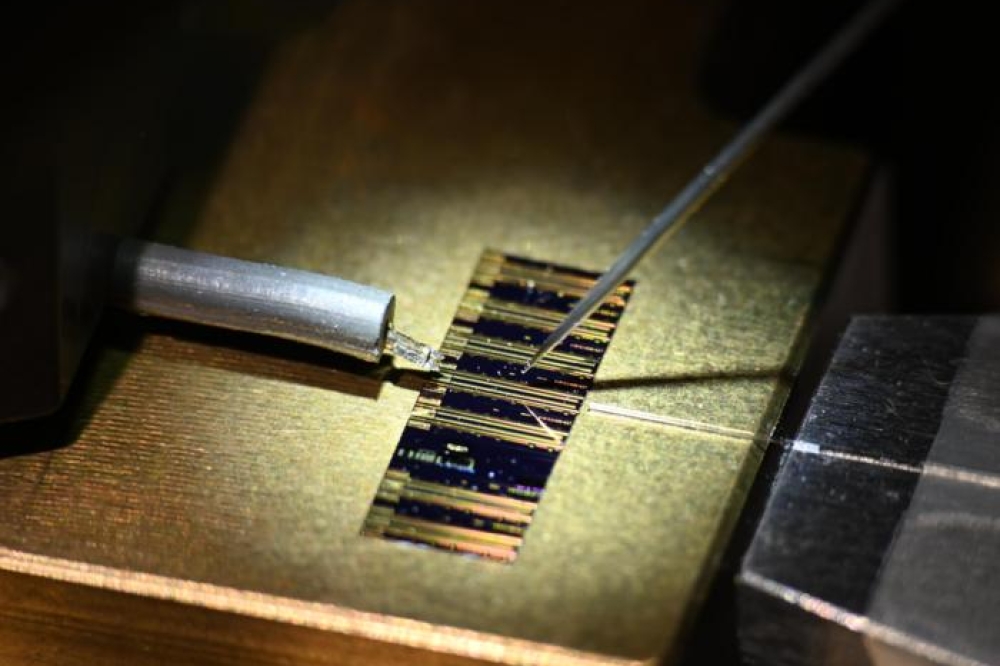News Article
Optoelectronics boosted by multi-million pound order
A cluster system order received by Oxford Instruments will improve the energy efficiency performance of electronic and optoelectronic devices

Oxford Instruments has recently received a multi-million pound order for a complex deposition and analysis cluster system from the James Watt Nanofabrication Centre at the University of Glasgow.
The system will enable development to improve the energy efficiency performance of electronic and optoelectronic devices for a large range of applications.
Through its Plasma Technology and Omicron Nanoscience businesses, the Oxford Instruments Nanotechnology Tools business sector was able to provide the broad range of technologies necessary for this ‘Powerhouse’ multi-chamber and multi-function system.
This Oxford Instruments four chamber cluster system combines the following: Plasma Technology’s FlexAL Atomic Layer Deposition tool used for depositing very thin films of metals, oxides and nitrides using both thermal and inductively coupled plasma (ICP) ALD processes, a PlasmaPro System100 ICP for etching of compound semiconductor materials and a PlasmaPro System100 ICP for High-Density PECVD deposition system providing for low damage, low temperature thin films; plus the Omicron Nanoscience NanoSAM LAB, for surface sensitive chemical analysis and high resolution imaging of small (micro and nano) structures by Scanning Auger Microscopy) and Scanning Electron Microscopy.
These systems will be combined in a unique configuration, and under vacuum, allowing device manufacturing and characterisation measurements to be performed on device interfaces and surfaces without exposure to atmosphere. This is a very exciting development for Oxford Instruments.
They will be used in projects that will develop applications and improve the efficiencies of electronic and optoelectronic devices, and aid in the reduction of ICT energy consumption and carbon emissions.
Projects include ''Silicon compatible GaN power electronics'' developing energy efficient power electronics, and ''Scalable solar thermoelectrics and photovoltaics'' where the objective is to dramatically reduce the cost of large scale exploitation of solar energy and in so-doing massively decrease the carbon dioxide emissions associated with electrical and thermal power generation.
Douglas Paul, Director of the James Watt Nanofabrication Centre at Glasgow, comments, “We chose Oxford Instruments systems for a number of reasons: our long and successful collaboration history, Oxford Instruments was the manufacturer who could integrate an analysis chamber with sub-10 nm resolution for chemical analysis (essential for many nanodevices), and also because of the very strong third-party recommendations we received about the capability of their ALD system. We are looking forward to the extensive research opportunities this system will enable.”
Mark Sefton, Sector Head for Oxford Instruments Nanotechnology Tools adds, “This substantial order from a leading British research institute is great news for us. Our group of businesses offers the research community the opportunity to integrate a range of our high technology fabrication and analysis tools, rather than having to approach multiple suppliers. Longer term benefits are that our dedicated process, service and support team will be able to offer Glasgow University the cohesive process applications and system support on the entire system that they will require.”































